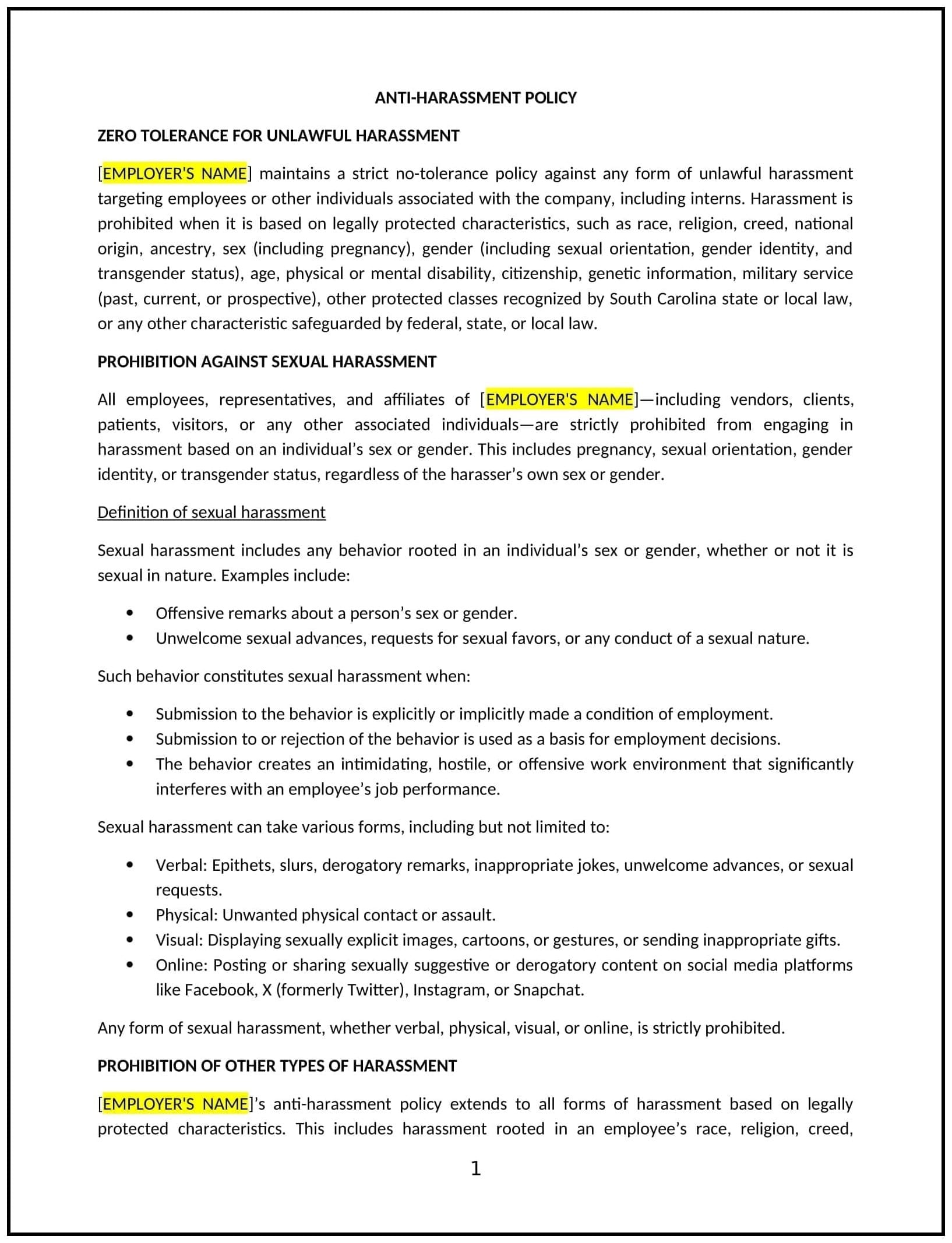Anti-harassment policy (South Carolina): Free template
Got contracts to review? While you're here for policies, let Cobrief make contract review effortless—start your free review now.

Customize this template for free
Anti-harassment policy (South Carolina)
This anti-harassment policy is designed to help South Carolina businesses establish guidelines for preventing and addressing harassment in the workplace. It outlines procedures for reporting incidents, ensuring employee safety, and maintaining a respectful work environment.
By adopting this policy, businesses can promote a safe and inclusive workplace, reduce risks, and align with general best practices for employee relations.
How to use this anti-harassment policy (South Carolina)
- Define harassment: Specify what constitutes harassment, such as verbal abuse, discrimination, or unwanted physical contact.
- Establish reporting procedures: Provide steps for employees to report incidents of harassment, including anonymous reporting options.
- Address support measures: Outline actions to protect employees, such as counseling or mediation services.
- Set consequences: Explain the disciplinary actions for engaging in harassment, such as warnings, suspension, or termination.
- Train employees: Educate employees on recognizing and reporting harassment, as well as fostering a respectful workplace.
- Provide resources: Include information about employee assistance programs (EAPs) or other support services for affected employees.
- Review and update: Assess the policy annually to ensure it aligns with evolving workplace needs and legal standards.
Benefits of using this anti-harassment policy (South Carolina)
This policy offers several advantages for South Carolina businesses:
- Promotes a safe workplace: Establishes clear guidelines for preventing and addressing harassment.
- Reduces risks: Helps mitigate the likelihood of workplace incidents and associated legal or financial liabilities.
- Aligns with best practices: Demonstrates a commitment to maintaining a safe and inclusive work environment.
- Enhances employee confidence: Shows employees that the business prioritizes their safety and well-being.
- Builds trust: Fosters a positive relationship between employees and the business by demonstrating care and support.
Tips for using this anti-harassment policy (South Carolina)
- Communicate the policy: Share the policy with employees and include it in the employee handbook.
- Provide training: Educate employees and managers on recognizing, reporting, and preventing harassment.
- Monitor compliance: Regularly review incident reports to ensure adherence to the policy.
- Address issues promptly: Take immediate action to investigate and resolve reports of harassment.
- Update regularly: Review the policy annually to ensure it remains relevant and effective.